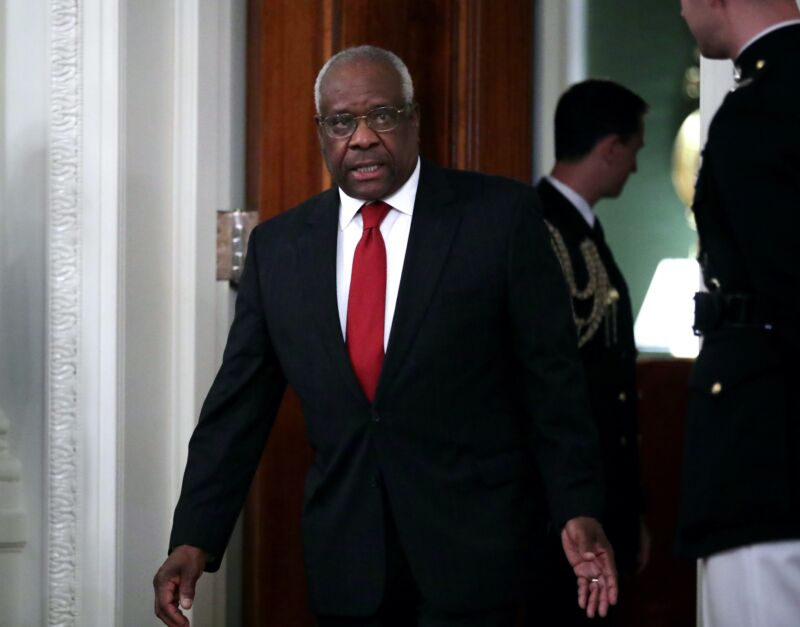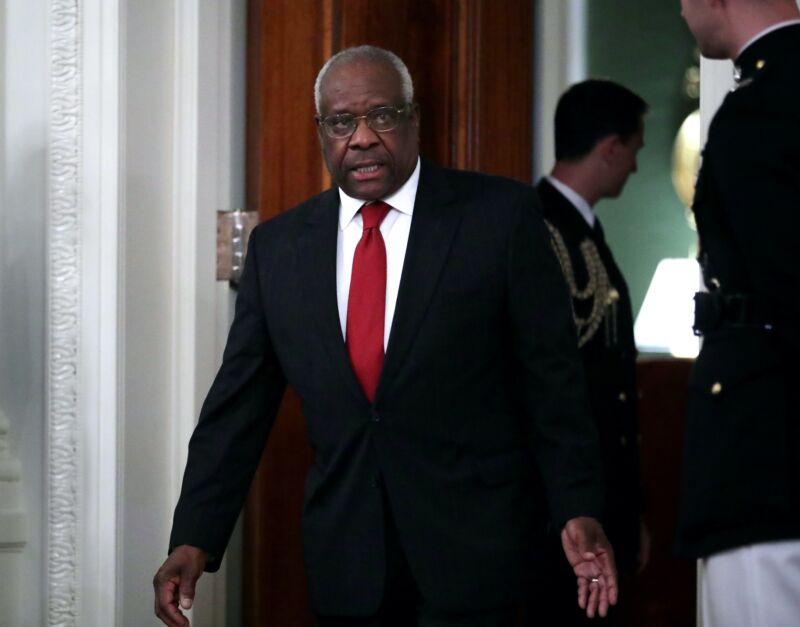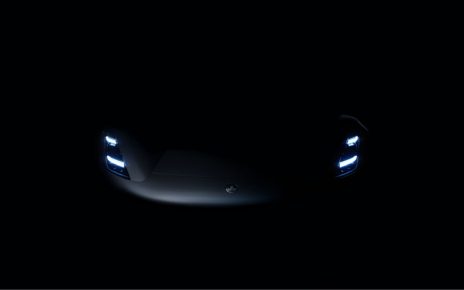
Enlarge / Supreme Court Justice Clarence Thomas arrives for the swearing-in of Justice Brett Kavanaugh in the East Room of the White House on October 8, 2018 in Washington, DC. (credit: Getty Images | Chip Somodevilla )
The US Supreme Court today vacated a 2019 appeals-court ruling that said then-President Trump violated the First Amendment by blocking people on Twitter. The high court declared the case “moot” because Trump is no longer president.
For legal observers, the ruling itself was less interesting than a 12-page concurring opinion filed by Justice Clarence Thomas, who argued that Twitter and similar companies could face some First Amendment restrictions even though they are not government agencies. That’s in contrast to the standard view that the First Amendment’s free speech clause does not prohibit private companies from restricting speech on their platforms.
Thomas also criticized the Section 230 legal protections given to online platforms and argued that free-speech law shouldn’t necessarily prevent lawmakers from regulating those platforms as common carriers. He wrote that “regulation restricting a digital platform’s right to exclude [content] might not appreciably impede the platform from speaking.”





